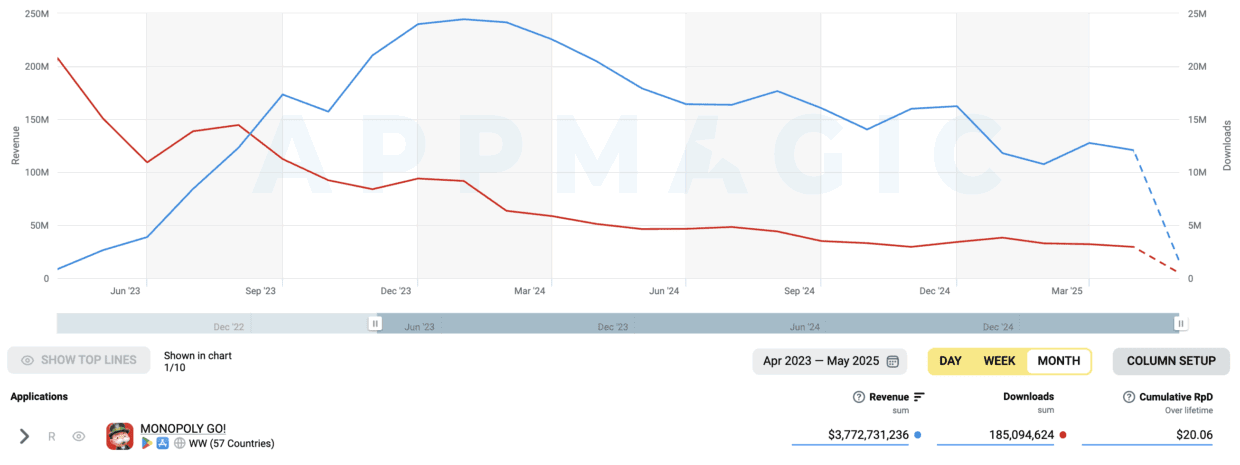
- arrow_back Home
- keyboard_arrow_right Highlights
$5 Billion in Two Years: How Monopoly Go! Changed the GAME
HighlightsJournal 139 Gamigion May 5
Monopoly Go! just did what few mobile games ever could: rake in $5 billion in under two years.
It’s the fastest a mobile title has ever reached that milestone, putting it in the elite club with Genshin Impact, Pokémon Go, and Royal Match.

But it wasn’t just a lucky roll of the dice.
Back in 2016, Scopely bet big on an ambitious idea: reimagining Monopoly for mobile in a way that felt fresh, social, and addictively fun. Seven years and $70 million later, they cracked the code—not by mimicking the board game, but by bottling the feeling of it. “How do you bring Monopoly’s energy—the thrill of getting rich, bankrupting your siblings, and laughing through it all—to mobile?” asked Scopely co-CEO Javier Ferreira.
Reinventing A Classic
Early versions missed the mark. Too skill-based. Not social enough. What turned the tide? Ferreira’s team engineered gameplay that tapped into players’ real-life social networks, not just in-game avatars. They created a party of chaos and competition where your friends and family are always invited—and always a dice roll away from ruin.
Today, 10 million people play daily.

The Power Of Social + Smart Data
Monopoly Go!’s meteoric rise isn’t just about a beloved IP. It’s built on a relentless loop of player feedback, real-time data, and smart evolution. Scopely fine-tunes constantly, balancing fun with friction to keep people coming back for more, especially in a post-pandemic world where leisure time is fragmented and fiercely contested.
And while its monetization model isn’t groundbreaking, the game’s long-term retention and virality are off the charts. That combo helped Scopely weather an industry downturn and stand tall after its $4.9 billion acquisition by Saudi-backed Savvy Games. The success has even fueled Scopely’s next mega move: acquiring Niantic’s game studio (yes, the Pokémon Go guys) for $3.5 billion.
A New Era Of Gamers
Monopoly Go! didn’t just win over gamers—it created new ones. As industry veteran Eugene Evans put it, “They’ve been training people to play Monopoly for 90 years. Many of their players had never paid for a game before. That’s the power of nostalgia paired with smart design.”
In a world where everyone’s vying for a slice of your screen time, Monopoly Go! proved something big: make a game everyone wants to play—and they’ll show up, every day, whether they call themselves gamers or not.
Source: Forbes







